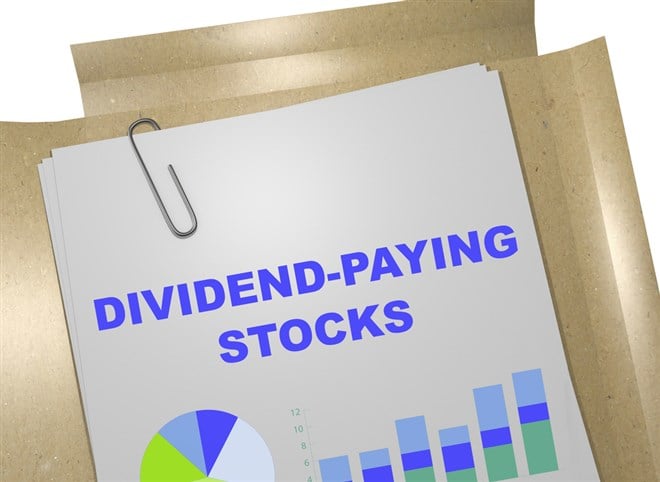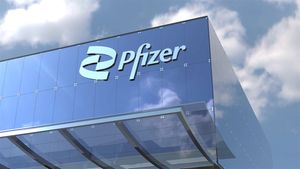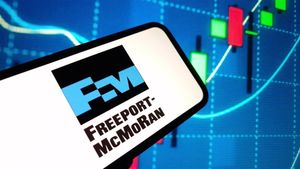
- Procter & Gamble Company has increased its annual dividend in each of the last 66 years
- Johnson & Johnson has raised its dividend every year since 1962.
- The Coca-Cola Company marked the 60th consecutive year of dividend increases in February
In sports, there are plenty of memorable records etched into our minds.
The stock market boasts some impressive records of its own. Some, like the Nasdaq’s 19-day run in 1979, are legendary. Others, like 2022’s seven-week S&P 500 slump, are forgettable.
In the category of ‘Best in Dividends,’ a handful of companies stand out from the crowd. Over the last 60-plus years, annual dividend increases have been as constant as the changing of the seasons for only 10 U.S. stocks.
Not even Black Monday in October 1987, the Dot-com Bubble of March 2000, the Financial Crisis of 2007-2008, or the more recent coronavirus could stop this elite group from keeping their historic dividend hike streaks intact.
And with the U.S. economy staring at another recession, it may be a good time to lean on the stability and income of the dividend growth champs. These three defensive names rise to the top of the list.
Which Consumer Staples Company Has the Longest Dividend Streak?
The Procter & Gamble Company (NYSE: PG) has increased its annual dividend in each of the last 66 years. Only Dover Corp. and Genuine Parts can claim the same, and only American States Water Co.’s 67 years tops it.
On average, the household essentials giant has raised its dividend by 6% over the last five years. That has brought the current annualized payout to $3.65. With the stock trading roughly $30 below its January 2022 peak, this gives P&G a 2.66% forward yield. It is a yield that is no longer on par with the 10-year Treasury yield but still a good income-producing alternative that, unlike its risk-free counterpart, comes with the potential for significant share price appreciation.
Procter & Gamble’s financial strength has supported its ability to boost dividends for more than six decades straight. Simply put, its cleaning and personal care products are a source of steady consumer demand. Popular brands like Charmin, Scope, and Tide generate healthy profit margins, which leaves the company lots of money to pay its bills and rewards shareholders with dividends. Not only has P&G put together an industry-best dividend increase streak, but it has paid a dividend every year dating back to 1890.
What Drives Johnson & Johnson’s Dividend Increases?
Johnson & Johnson (NYSE: JNJ) has raised its dividend every year since 1962. No other healthcare company can match the feat although Becton, Dickinson & Co. is not far behind at 50 years.
Even though more than 40% of J&J’s earnings are returned to shareholders as dividends, the company has ample cash left over to pursue organic growth opportunities and M&A. J&J has a good track record of integrating acquisitions which means it gets the most out of its new businesses to maintain solid cash flow growth. Interestingly, its 1961 takeover of Belgian drug company Janssen Pharmaceutica seemed to kick start the dividend hike campaign. It was the same year that Tylenol became available over-the-counter.
The current annual dividend of $4.52 means investors can get a 2.75% yield on a blue chip stock that is recovering from a rare four-month losing streak. We have to go back to early 2018 to see the last time J&J went on such an extended skid. History is of course no guarantee of the future, but it's noteworthy that the stock then moved higher for six straight months to establish a new record high.
Will Coca Cola Keep Raising Its Dividend?
When The Coca-Cola Company (NYSE: KO) raised its quarterly dividend from $0.42 to $0.44 in February, it marked the 60th consecutive year of dividend increases. The beverage maker’s two cents gives stockholders a $1.76 annual cash payout and prospective investors an attractive 2.95% forward yield. Compare that to the yield on the average consumer staples stock of 1.9%.
The predictability of Coca Cola’s business together with the dividend are the main attractions of the equity investment. Its expanding portfolio of sodas, juices, teas, and coffees derive steady profits that are reinvested in the business, paid as dividends, and used for share repurchases. Look no further than Warren Buffet, whose Berkshire Hathaway is the largest Coca Cola owner with some 400 million shares.
In recent years, the pace of the dividend increases slowed as Coca Cola took a cautious stance on pandemic-related supply chain disruptions and inflationary effects on consumer spending. Coke’s board opted for 2.4% to 2.6% dividend growth rates from 2019 to 2021. The good news is the recent boost was an acceleration that brought the growth back to pre-2019 levels of around 5%.
Typically Coca Cola’s dividend growth rate follows the trajectory of its earnings growth. Despite the impacts of inflation and the strong dollar, Wall Street’s estimate for 2023 EPS growth is around 5%. If things go as predicted, look for Coke to tack on another couple of pennies to its dividend and the streak to extend to 61 years. Cherry Coke in hand, the Oracle of Omaha will drink to that!






